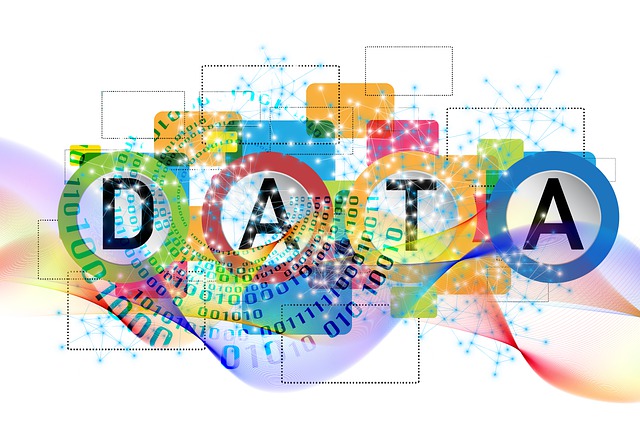Digital marketing campaigns are essential for modern businesses, leveraging diverse online platforms like social media, email, search engines, and websites to attract, convert, and retain customers. Key strategies include setting clear objectives, utilizing data analytics for precise targeting, choosing the right communication channels (e.g., social media, email, SEO), creating compelling content tailored to audience preferences, and measuring success through analytics tools. Continuous optimization, A/B testing, and learning from past campaigns are vital for maximizing ROI in the dynamic digital marketing landscape.
In today’s digital era, a robust Digital Marketing Campaign is vital for business growth. This comprehensive guide explores the intricacies of designing and executing successful campaigns. From establishing clear objectives and pinpointing your target audience to selecting optimal channels and creating engaging content, we’ll navigate you through each step. Learn how to measure campaign success using analytics and track performance for continuous improvement. Discover strategies to optimize and iterate, ensuring your digital marketing efforts stay ahead of the curve.
Understanding Digital Marketing Campaigns: A Comprehensive Overview

Digital marketing campaigns have become an integral part of modern business strategies, offering a comprehensive and dynamic approach to reaching and engaging with target audiences. In essence, digital marketing is about creating and delivering valuable content and experiences through various online channels, such as social media, email, search engines, and websites. These campaigns aim to attract, convert, and retain customers by leveraging data-driven insights and innovative technologies.
A well-crafted digital marketing campaign involves careful planning, strategic targeting, and creative execution. It starts with defining clear objectives, understanding the target market, and developing compelling content that resonates with them. Marketers utilize advanced tools for tracking and analyzing campaign performance, enabling them to make data-backed adjustments for optimal results. By staying agile and responsive to consumer behavior, businesses can ensure their digital marketing efforts remain effective and relevant in the ever-evolving online landscape.
Setting Clear Objectives and Defining Your Target Audience

In the realm of digital marketing, setting clear objectives is paramount for any successful campaign. Defining measurable goals allows businesses to navigate the vast digital landscape with precision and focus. Before deploying any strategy, it’s crucial to understand your target audience—their demographics, preferences, and online behaviors. This involves delving into data analytics to identify where your potential customers spend their time online, what content resonates with them, and how best to reach them.
By establishing specific objectives like increased brand awareness, higher website traffic, or improved lead generation, you can tailor your digital marketing efforts accordingly. For instance, if the goal is to boost brand visibility, social media platforms offer ample opportunities through targeted ads and engaging content. Conversely, for lead generation, email campaigns and landing pages optimized for conversions might be more effective in capturing interested prospects. Thus, aligning objectives with audience insights ensures that your digital marketing campaigns deliver tangible results.
Choosing the Right Channels for Effective Reach

In the realm of digital marketing, selecting the optimal channels is paramount for achieving effective reach and engaging your target audience. The right choice can mean the difference between a successful campaign that drives results and one that falls flat. Social media platforms like Facebook, Instagram, and Twitter offer vast audiences and sophisticated targeting options, making them powerful tools for brand visibility and customer interaction. On the other hand, email marketing remains an effective strategy for nurturing leads and retaining existing customers through personalized content delivery.
Furthermore, search engine optimization (SEO) plays a crucial role in organic reach, ensuring your website appears prominently in search results. Content marketing, when combined with strategic distribution through these channels, can create a powerful digital marketing campaign that resonates with audiences, drives engagement, and ultimately boosts conversions.
Crafting Engaging Content That Resonates

In the realm of digital marketing, crafting engaging content that resonates with your target audience is paramount for campaign success. It involves a deep understanding of their preferences, behaviors, and pain points, which can be achieved through thorough market research and analytics tools provided by various digital platforms. By tapping into these insights, marketers can create compelling narratives that not only capture attention but also offer value, fostering a connection with potential customers.
Content should be tailored to the specific channels used for distribution, whether it’s captivating visuals for social media, informative blogs for search engine optimization (SEO), or interactive videos for email campaigns. The key is to maintain a consistent brand voice while adapting to the unique characteristics of each platform, ensuring that your message remains fresh and memorable throughout the digital marketing journey.
Measuring Success: Analytics and Performance Tracking

Measuring success is a pivotal aspect of digital marketing campaigns, providing valuable insights into what works and what needs improvement. Analytics tools play a crucial role in this process by tracking key performance indicators (KPIs) such as website traffic, conversion rates, click-through rates, and return on investment (ROI). By analyzing these data points, marketers can identify trends, understand customer behavior, and make data-driven decisions to optimize their strategies.
Performance tracking allows for continuous improvement in digital marketing efforts. For instance, if a particular ad campaign isn’t performing well, analytics can help pinpoint the issue—whether it’s target audience mismatch, ineffective messaging, or low-quality visuals. Armed with these insights, marketers can swiftly adjust tactics, ensuring each subsequent campaign has a better chance of achieving its objectives and maximizing the overall success of digital marketing initiatives.
Optimizing and Iterating for Continuous Improvement

In the realm of digital marketing, optimization and iteration are key strategies for achieving success and keeping up with the dynamic nature of online trends. Campaigns should be designed with a flexible mindset, allowing for regular adjustments based on data-driven insights. By continuously testing and refining various elements such as content, targeting options, and call-to-actions, marketers can enhance campaign performance and better engage their target audience. This process involves analyzing key performance indicators (KPIs), A/B testing different approaches, and learning from both successful outcomes and failed experiments.
Through iterative practices, digital marketing campaigns can evolve and adapt to the ever-changing online landscape. Marketers who embrace optimization as a continuous journey are better equipped to stay relevant, capture attention, and ultimately drive conversions. This approach ensures that each campaign becomes a masterpiece in progress, constantly refining its strategy to leave a lasting impact in the competitive world of digital marketing.
